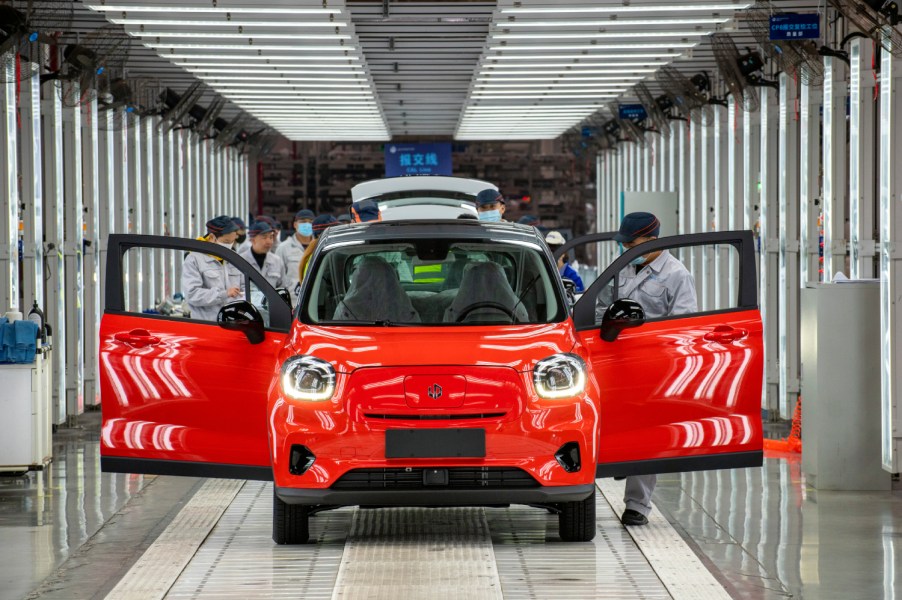
Semiconductor Chip Shortage Over? Vehicle Production up 43.1% in Japan, Toyota Says “Not so Fast”
While the semiconductor chip shortage has been ravaging the automotive industry for the last year, is there a light at the end of the tunnel? Japan saw a rise in production overall during November. However, the most recent semiconductor chip shortage and COVID-19 (coronavirus) drama might still hamper new car production through the end of the year. Toyota saw a slight improvement in November, but will that hold through the end of the year?
Japan vehicle output was up 43% in the midst of the semiconductor chip qshortage

Many automakers were putting all of the proverbial eggs in a basket for the last quarter of the year. In Japan, Reuters says that factory output “jumped at the fastest pace on record in November.” Even though coronavirus cases are on the ride again, Reuters says the bottleneck of supply chain issues has eased up in the past month or so.
In November, factory production was up 7.2% in Japan over the previous month. That is the most significant jump since 2013 when such data was first gathered. Production was up 1.8% in October, which means November was the second month a positive gain was noted.
But automobile production is where the seriously impressive. Vehicle production was up 43.1% in November. But it doesn’t seem like automakers are totally out of the woods yet.
There is a new semiconductor chip hitting the market
According to analysts, there is the potential for a new type of semiconductor chip shortage on the horizon. Chip manufacturers are focusing on newer “cutting edge” chips, but one expert says that isn’t needed right now. Chihiro Ohta, general manager for investment research and investor services at SMBC Nikko Securities, said, “what is required for cars aren’t the state-of-the-art chips. They need old-generation models.” Either way, manufacturers expected a 1.6% output rise in December and another 5% jump in January.
There are also major plans for new chip pants around the world. Once these plants are built and produce more semiconductor chips, the shortage problems will further ease.
Toyota plans to pause production in January once again
In January, Toyota said it would suspend production at five plants in Japan due to ongoing semiconductor chip shortages and other pandemic-related issues. Reuters says that the shutdown could impact the production of about 20,000 new cars. In addition, Toyota anticipates production in American facilities will be down about 50,000 units in January.
The automaker has plans to make nine million vehicles in 2022, which means Toyota needs to have a solid start for the year to meet those goals. Production numbers have been lingering around 800,000 vehicles for the end of the year, which was the goal for December. As 2021 comes to a close, the automotive industry has big plans for the year ahead.



